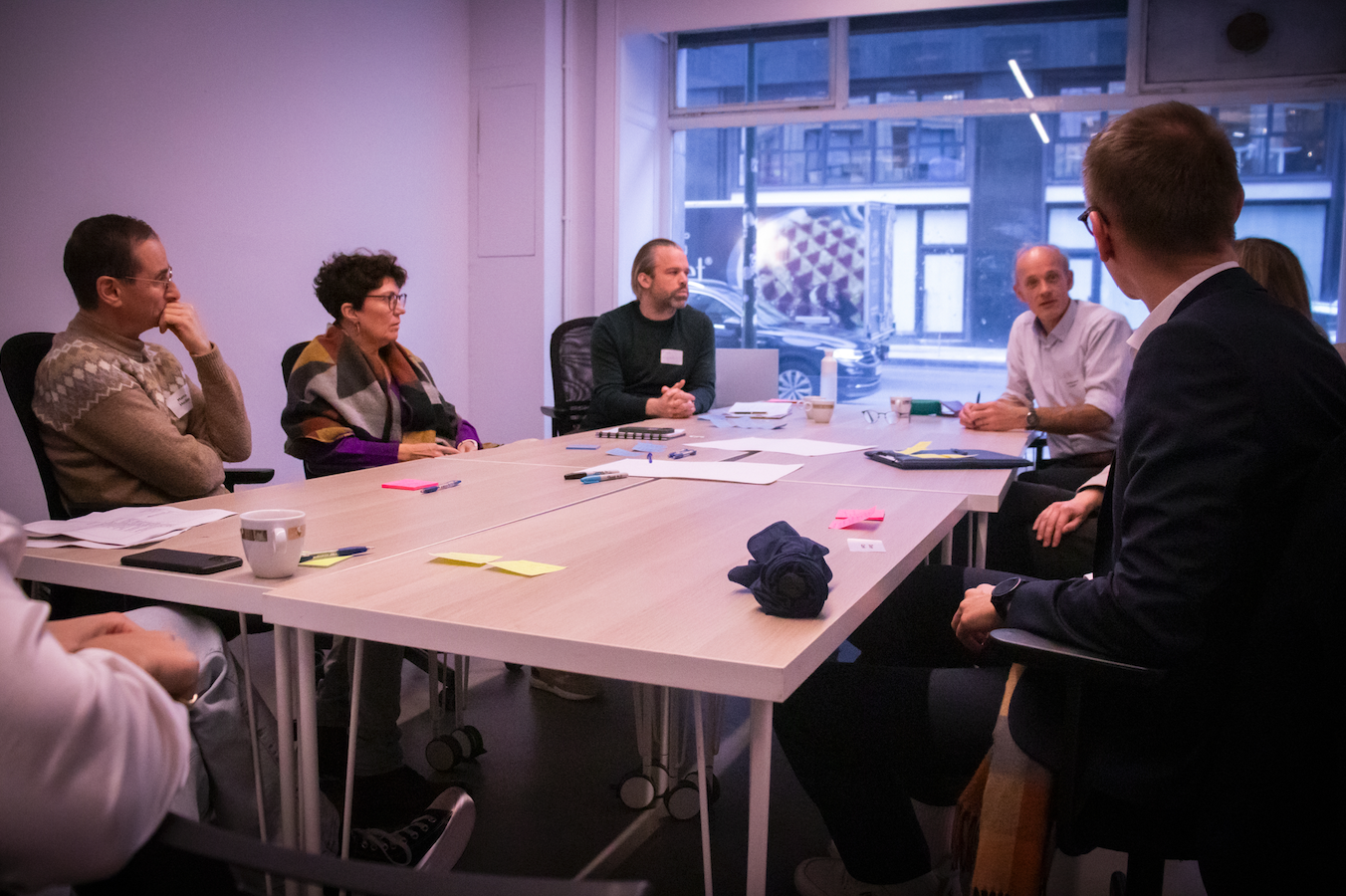Bram Allegaert (BrainBugs) on the learning community 'AI and ethics in practice': a sounding board and a good place for inspiration
18.03.2024
What are the big social questions we should be asking around AI? That is a question Bram Allegaert (BrainBugs) also often asks and to which he still does not have a complete answer. Bram works within BrainBugs on developing serious games for social innovation and has been a member of the learning community network 'AI and ethics in practice' since its launch. We spoke to him briefly about his experiences with the learning community network so far.
Hi Bram, what prompted you to join the learning network 'AI and ethics in practice'?With BrainBugs, our serious game studio, we are currently developing a new game for schoolchildren about AI and the ethical questions involved. We notice that in many schools, the focus is mainly on the technical (how does it work? What software do we need?), and that these important social questions only come in second place. We want to change that with our new game on AI and ethics. The learning network 'AI and ethics in practice' is a good place to find inspiration and possibly a sounding board for our games.
What is valuable to you about the learning community?
With BrainBugs, we are sometimes an outsider within the network because we are such a small organisation that is mainly interested in the specific ethical questions. The topics discussed are often more about organisational-level ethics. But because the conversation is conducted in an accessible way, I can still follow along and we have also learnt things from this for our own organisation and how we use AI within our projects
For example, there was a very interesting session recently where a member of the network asked the question about what happens to the data you feed into Chat-GPT or other generative AI as a prompt. That was a good wake-up call for me to be careful with prompts.
Photo of a conversation during one of the learning network meetings. Photo by Anaïs Ntabundi.
What do you think of the format?
The format of working from the participants' questions and challenges is very interesting. It keeps the discussion practical and accessible. There are physical and online meetings; I personally get the most out of the physical meetings because then you can have more concrete and in-depth discussions in subgroups.The topics are well-defined and it is clear in advance what the subject of the meeting will be. This way, I can usually assess whether a session will be interesting for me. One time, I skipped a session that was not relevant to me, but the session after that was very interesting.What else do you hope to learn from others in the community?
In the future, I hope to further critically reflect on technology and the big social questions we need to ask about AI. I would also like to discuss more concrete tips on, for example, alternatives to Big Tech. For example, another member of the learning network recently shared on LinkedIn good concrete tips on Chat-GPT settings, things like that are also very valuable.
In addition, we are now developing a serious game about AI and ethics. There are a number of modules which, in terms of content, are not quite up to scratch yet. It would be cool to brainstorm together with people from the network about the things we want to teach students and teachers about AI. So as to help and inspire each other.
That is exactly the purpose of the learning community. Thanks for the chat, Bram!
The learning community 'AI and ethics in practice'
Are you aware of the ethical challenges in data-driven applications or AI, but not sure how to deal with them in an innovation project? With the learning network 'AI and ethics in practice', the Knowledge Centre Data & Society brings together professionals working on responsible AI and data-driven applications. In the network, professionals share their experiences and knowledge with each other, to learn from each other about how ethics can be applied in AI and data-driven processes.
The network meets four times a year, usually three times online and once physically. Each meeting focuses on one topic, such as convincing management of the added value of ethics, or how to make a success of an ethics committee. During the meetings, some members of the network testify about their experiences with a particular topic. The other members can ask questions about the topic and/or share their own experiences and knowledge with the group.
Would you like to join this learning community? Or would you like to receive more information about it first? Contact info@data-en-maatschappij.ai. We also wrote a blog post about the network with more information. You can find all upcoming meetings in the events calendar.